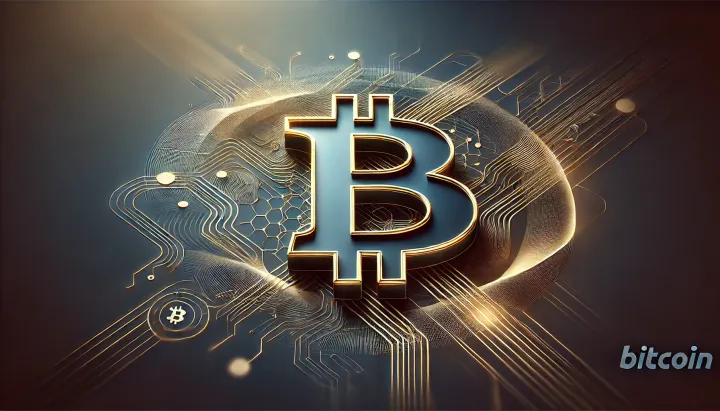Bitcoin and the Shifting Paradigms of Value: Insights from Art, Real Estate, and AI
The December 4, 2024 episode of the Bitcoin Fundamentals podcast features Tad Smith, former CEO of Sotheby’s, exploring the evolving dynamics of value creation and wealth management, comparing Bitcoin, art, and real estate as investment options.

- My 'briefing notes' summarize the content of podcast episodes; they do not reflect my own views.
- They contain (1) a summary of podcast content, (2) potential information gaps, and (3) some speculative views on wider implications.
- Pay attention to broadcast dates (I often summarize older episodes)
- Some episodes I summarize may be sponsored: don't trust, verify, if the information you are looking for is to be used for decision-making.
Summary
The December 4, 2024 episode of the Bitcoin Fundamentals podcast examines Bitcoin’s role as a transformative store of value, juxtaposing it with art and real estate investments. The interview with Tad Smith highlights Bitcoin’s scarcity, growing adoption, and its disruptive potential in reshaping wealth preservation strategies, alongside trends in fiat-driven inequality and AI’s impact on creative markets.
Take-Home Messages
- Bitcoin’s Scarcity and Adoption: Bitcoin’s fixed supply and desirability position it as a superior store of value over traditional assets like real estate.
- Impact of Fiat Liquidity: Fiat-driven asset inflation deepens inequality, presenting Bitcoin as a viable alternative in preserving wealth.
- AI’s Creative Disruption: AI will dominate art creation within a decade, challenging perceptions of value tied to human creativity.
- Generational Investment Shifts: Younger investors are prioritizing Bitcoin over conventional assets, reflecting a strategic adaptation to evolving financial realities.
- Storytelling as Value Driver: From Bitcoin to art, storytelling shapes the perception and sustainability of value in modern markets.
Overview
The December 4, 2024 episode of the Bitcoin Fundamentals podcast delves into how humans assign value based on scarcity, desirability, and storytelling, using Bitcoin, art, and real estate as case studies. A striking example is the $6.2 million banana artwork, illustrating the power of narrative in determining worth. This is paralleled with Bitcoin’s scarcity-driven value, amplified by its growing desirability and adoption.
Tad Smith, CEO of Sotheby’s and the Madison Square Garden Company, critiques the fiat system’s role in fueling inequality through liquidity-driven asset inflation. This trend benefits those owning scarce and desirable assets, such as Bitcoin, while disadvantaging wage earners. He notes a growing shift among wealthy investors from real estate to Bitcoin, underlining Bitcoin’s potential to outperform traditional assets in a volatile economic climate.
Smith predicts AI will dominate art creation within a decade, raising ethical and market questions about human creativity’s role. He highlights a generational shift, with younger investors turning to Bitcoin as a hedge against inflation and fiat instability. The discussion emphasizes Bitcoin’s disruptive potential in redefining wealth management strategies and societal value metrics.
The episode concludes with reflections on how these trends intersect, from Bitcoin’s decentralized nature to AI-driven creativity, shaping a future where traditional investments face increasing obsolescence.
Stakeholder Perspectives
- Investors: Bitcoin offers a hedge against fiat inflation and a more reliable store of value than art or real estate.
- Younger Generations: Seek alternative investments like Bitcoin to navigate inflation and inaccessible traditional markets.
- Policymakers: Face challenges in addressing wealth inequality exacerbated by fiat-driven liquidity.
- Artists and Creators: Encounter competition from AI, which redefines traditional perceptions of creativity and value.
- Real Estate Developers: Experience diminishing interest from investors shifting toward Bitcoin for wealth preservation.
Implications
Bitcoin’s rise challenges traditional wealth strategies, offering a digital, finite alternative to fiat-inflated assets. Its disruptive potential could reduce reliance on real estate and luxury assets as primary stores of value, urging policymakers to reconsider economic frameworks. For investors, Bitcoin’s growing adoption underscores the need for strategies balancing its volatility with its long-term potential.
AI’s encroachment into creative industries redefines value creation, necessitating new ethical and economic considerations. The fusion of AI and human creativity might lead to hybrid markets, reshaping how society values originality and labor. Bitcoin’s narrative-driven adoption echoes this evolution, demanding adaptability from traditional sectors.
Future Outlook
Bitcoin’s trajectory suggests increasing relevance as both an investment and societal equalizer. As adoption grows, traditional asset classes will face erosion, particularly among new generations favoring decentralized systems. Policymakers must address volatility and regulatory challenges to unlock Bitcoin’s full potential.
AI’s influence on art underscores broader societal shifts toward machine-human collaboration. These transformations could redefine economic and cultural landscapes, urging stakeholders to rethink traditional roles and value metrics.
Information Gaps
- What are the key barriers to global Bitcoin adoption, and how can they be overcome? This addresses scalability and regulatory hurdles critical to Bitcoin’s global integration.
- How does Bitcoin’s fixed supply influence its role as a store of value compared to traditional assets? Understanding this helps investors assess Bitcoin's long-term viability against inflation-resistant assets like real estate.
- What strategies could reduce Bitcoin’s volatility without undermining its decentralized nature? Reducing volatility is crucial for fostering broader trust and institutional adoption.
- What factors are driving affluent investors to prioritize Bitcoin over real estate? Investigating this helps contextualize investment trends and the long-term implications for property markets.
- How does Bitcoin adoption affect wealth distribution in economies reliant on fiat currencies? Exploring this can guide equitable policies during Bitcoin's rise as a global asset.
Broader Implications for Bitcoin
Bitcoin as a Superior Store of Value
Bitcoin’s fixed supply makes it a compelling alternative to fiat-inflated assets. As traditional investments like real estate face erosion, Bitcoin’s decentralized and digital nature positions it as a generationally relevant store of wealth. This trend will likely accelerate as younger investors embrace Bitcoin over traditional markets.
Fiat Liquidity and Wealth Inequality
Fiat-driven liquidity exacerbates wealth inequality by inflating prices of scarce assets, benefitting the wealthy. Bitcoin offers a pathway to mitigate this disparity by democratizing access to an asset independent of centralized monetary systems. Policymakers must consider Bitcoin’s role in reshaping economic frameworks to counteract fiat-driven inequalities.
AI’s Disruption of Creative Markets
AI’s growing dominance in art challenges traditional concepts of value linked to human creativity. Hybrid systems where humans collaborate with AI could redefine markets, emphasizing the storytelling aspect of art over manual effort. Bitcoin’s integration into these digital ecosystems could drive further shifts in how value is perceived and stored.
Shifting Intergenerational Wealth Strategies
Younger investors are moving away from traditional financial advice, favoring Bitcoin for its potential to outperform real estate and other conventional assets. This shift reflects a broader transition towards decentralized and digitally native investment options. Understanding this trend is critical for stakeholders aiming to align with emerging generational preferences.
Evolving Perceptions of Value
Bitcoin’s narrative highlights the importance of scarcity and desirability in determining value, paralleling art and luxury investments. As intersubjective realities gain prominence, Bitcoin’s energy-backed system offers a unique framework for trust and value creation. This evolution could redefine global financial markets, emphasizing decentralized systems over legacy institutions.



Comments ()